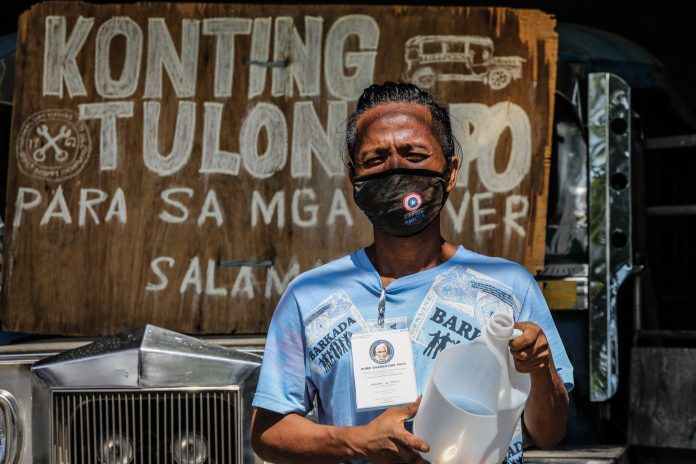Last May 11, before celebrating morning Mass at the Vatican, Pope Francis offered solace to those who had lost their jobs or were unable to work because of the coronavirus pandemic. He noted that around the world many have not been re-employed, or are working “under the table.” Hence, he said, “we pray for these brothers and sisters of ours who are suffering because of lack of work.”
He was referring to the adverse economic impact of the pandemic, with even the industrialized countries unable to cope with it. In the United States, for instance, some 20.5 million jobs were lost in April and the unemployment rate soared to 14.7 percent.
Here in the Philippines, the economic toll from COVID-19 impact is just as serious. with more than 2.3 million Filipino workers displaced nationwide as of end-April, according to the Department of Labor and Employment (DOLE).
This figure, based on reports submitted by 87,301 establishments from all regions, is higher than the estimate of the National Economic Development Authority (NEDA) in March of 116,000 to 1.8 million workers that would be displaced by the pandemic.
Nearly 6 in 10 displaced workers are in the National Capital Region, DOLE said. They are mostly in small businesses and the informal sector that are really having a hard time coping with the lockdown.
The business sector acknowledges that their operations have become more difficult after the initial one-month lockdown in Luzon from March 15 to April 15 that has been extended thrice to May 30. They cite a number of reasons for this: government-imposed restrictions; lack of public transportation; lack of logistics services, and unavailable supply of raw materials.
According to NEDA, without mitigating measures and safety nets, “the simultaneous adverse effects on the supply and the demand side of the economy” would imply a reduction in the Philippine’s real GDP growth to -0.6 to 4.3 percent in 2020, and would result in job losses.”
The prospect of more job losses in the months ahead has made workers’ groups very much concerned over what lies in store for them: “We are not opposed to community quarantine as it is clearly unsafe and hazardous for workers to expose themselves to the virus going to work. This might save them from COVID-19, but without providing the appropriate social protection, workers and their families would die from hunger. Thus, we are demanding a 10,000-peso quarantine subsidy.”
The Department of Labor and Employment (DOLE) has realigned P1.5 billion of its 2020 budget to aid more formal sector workers displaced by the coronavirus disease (COVID-19) pandemic.
The government, through the Labor department, has realigned its budget to provide a one-time cash assistance of P5,000 to only 300,000 workers. Obviously, this is not enough to allow the 2 million workers who will not get any subsidy to survive the extended lockdown until May 30. Workers’ groups estimate that P225 billion in subsidies would be needed to cover all affected workers.
“The COVID-19 pandemic should be a wake-up call for the government to invest heavily in our health system, particularly in government hospitals and for employing more medical practitioners and health workers who could render public service…. We have long called for an increase in the budget for the health sector, as well as other social services,” the workers pointed out.
The dire situation of Filipino workers has not escaped the attention of the Church.
As the country marked Labor Day last May 1, Caritas Philippines, the social action arm of the Catholic Church, lamented that the event was “another frustrating commemoration for workers.”
According to Bishop Jose Colin Bagaforo, national director of the group, the pandemic has exposed the “unjust treatment of Filipino workers, and our inability to effectively come to their (rescue).”
The prelate also expressed his full support for the call of the labor sector for “just policies and inclusive compensation packages” especially for informal workers.
But more than subsidies and relief goods for displaced workers, Bishop Gerardo Alminaza of San Carlos Diocese said the “real gift” to them is to respect their rights and dignity to “something beyond what is required by law.” “For so long we need to reclaim the rights and dignity of workers. We should uphold the primacy of labor over capital,” he said.
For its part, the National Council of Churches in the Philippines said as much when it called for prayers for those who suffer from the “no-work, no-pay” labor policy. “It is always those who are at the bottom of the economic and social pyramid who suffer the most,” the Protestant group said, and we can’t agree more.
Ernesto M. Hilario writes on political and social justice issues for various publications in the Philippines. The views and opinions expressed in this article are those of the author and do not necessarily reflect the official editorial position of LiCAS.news.









